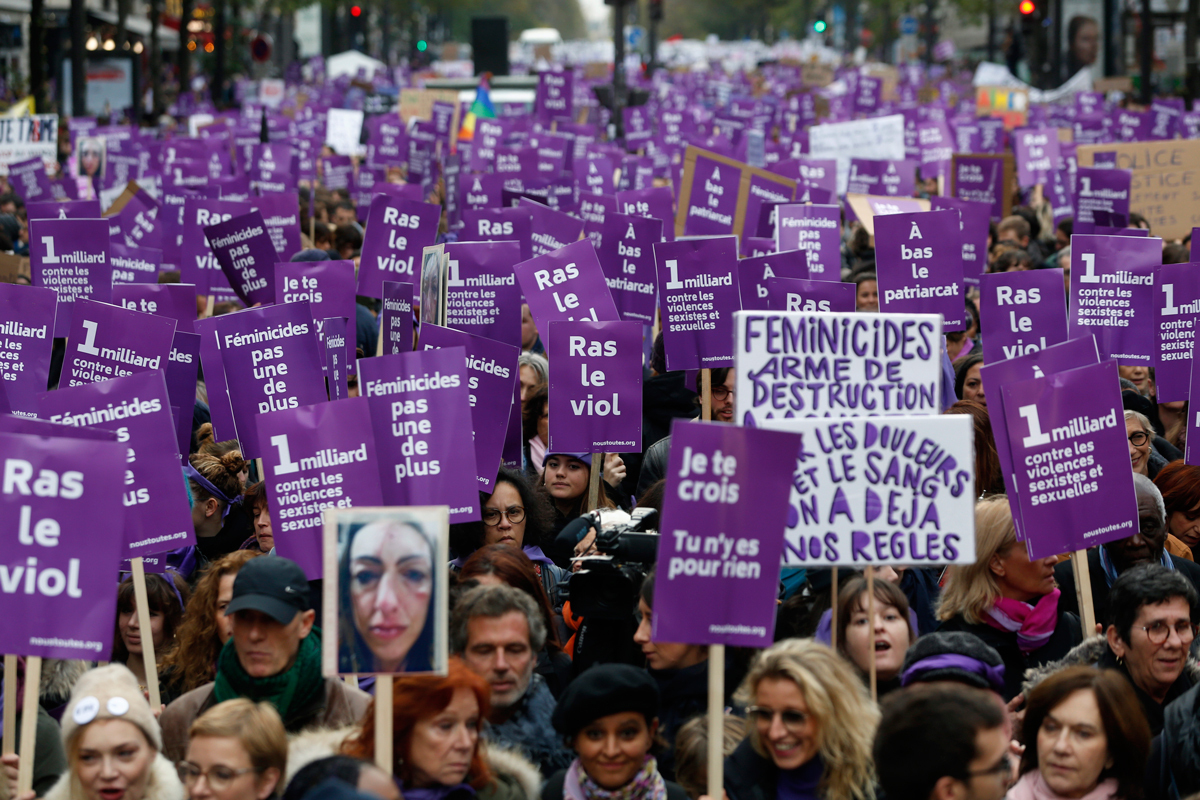The increasing problem of gender-based violence


Gender-based violence (GBV) is a global pandemic that affects the lives of one in three women. GBV may take many forms including domestic violence, sexual violence and trafficking, and psychological and emotional violence.
Forced child marriages, honor killings and femicides are part of this spectrum of violence. According to the United Nations, gender-based violence "…is rooted in gender inequality, the abuse of power and harmful norms". Although the majority of the victims are women, men and gender-non-conforming individuals also experience this kind of violence.
Gender-based violence is equally widespread in both developing and developed countries, such as in the US, England, Italy, France and Germany. This shows the need to implement more comprehensive measures to deal with this social phenomenon.
Domestic violence, the most common form of gender-based violence, is not, of course, a new phenomenon. Before the pandemic, it is estimated that 243 million women and girls (aged 15-49) worldwide had been victims of sexual or physical violence during the previous 12 months that was, in most cases, perpetrated by an intimate partner. That number significantly increased during the first couple of years of the pandemic when lockdowns were instituted.
According to a UN survey that concluded in September 2021, nearly 7 in 10 women said domestic violence increased in their community since the start of the pandemic, when lockdowns were instituted.
Domestic violence is vastly underreported. According to UN estimates, less than 40 percent of women who are physically abused at home seek help.
During lockdown periods, victims may be too scared to call the police for fear their abuser can overhear them. UN Women has called violence against women "the shadow pandemic," and António Guterres, the UN Secretary-General has said, "Peace is not just the absence of war. Many women under lockdown for #COVID19 face violence where they should be safest: in their own homes."
Gender-based violence provokes an array of physical and psychological consequences such as body injuries, gastrointestinal problems, sleeping and eating disorders, chronic pain, sexually transmitted infections (STIs), and miscarriages and unwanted pregnancies. Psychological consequences include depression, lowered self-esteem, suicidal thoughts, alcohol and drug abuse, and post-traumatic-stress-disorder that can last for a lifetime.
The global cost of violence against women had been estimated at $1.5 trillion, a figure that is bound to increase as the pandemic continues. According to the American Journal of Emergency Medicine, the number of domestic violence cases rose by 25-33 percent globally in 2020 compared to 2019. The United Nations group UN Women reports that incidents of domestic violence during the pandemic increased 300 percent in Hubei, China; 25 percent in Argentina; 30 percent in Cyprus; and 50 percent in Brazil.
The release of inmates from prisons — which has become a hotbed for the spread of the COVID-19 pandemic— worsens the situation. When some inmates are released, they recreate the conditions of violence that landed them in prison at home. That is why family victims should be notified in advance about the release of inmates, and local governments should implement preventative and support measures to avoid dire consequences.
Prevention is one of the more effective strategies against gender-based violence. That is why education is one of the most effective strategies to deal with this problem. Everybody should learn about the roots of violence against women and girls. Social media is a very effective way to disseminate the message on the need to stop this violence and to create a culture of equality between men and women.
Governments should increase public-awareness campaigns, increase funding for women's organizations and create more opportunities to foster women's economic independence. At the same time, laws should be implemented that prioritize women's safety and harshly punish the perpetrators of those crimes.
All officials, including medical and paramedical personnel should be better trained to offer adequate support. Violence is a choice, and it is preventable. Prevention cannot be a short-term effort but a long-term commitment. These are trying times for women's rights worldwide. But they are also a chance for change and improvement.
Dr. César Chelala is an international public health consultant. He has written extensively on women's health issues. The views don't necessarily reflect those of China Daily.
If you have a specific expertise, or would like to share your thought about our stories, then send us your writings at [email protected], and [email protected].
































